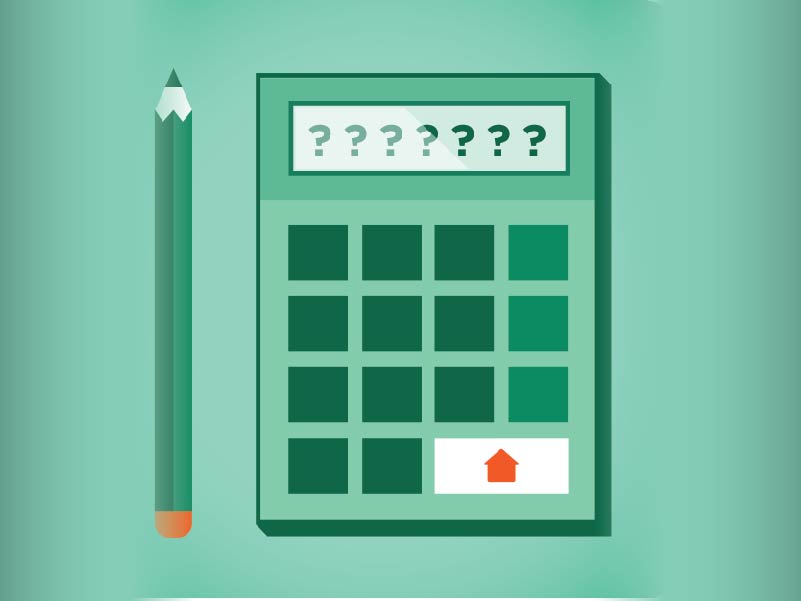FDIC-Insured - Backed by the full faith and credit of the U.S. Government
-
-
-
FNBO
Mortgage
Date Published: November 01, 2018
-
Article | Read time: 4 minutes

First things first: There’s no need to pull your hair out over closing costs when it comes to buying a home. Just know that all home purchases come with them. It’s simply part of the process. However, those costs can vary greatly, which is why it’s smart to ask your lender questions when it comes to the fees that are associated with closing on a home.
By the way, if you don’t think you need to worry about closing costs because you plan to ask the home’s seller to pay them, think again. In today’s competitive home markets, that option is becoming rarer and rarer. It’s a seller’s market, so sellers don’t necessarily need to make concessions like covering your closing costs.
Regardless of whether or not you can talk the seller into paying the closing costs, it’s important to determine what exactly those costs will be in the likely case that you – the homebuyer – has to pay those fees.
“Fees for closing services come in all shapes and sizes,” says Alan LaFollette, Vice President, Home Lending at FNBO. “And because fees vary widely from market to market, and even lender to lender, it’s important for us to answer the homebuyer’s questions about closing costs and explain the process to them as clearly as possible.
“This is one of the largest financial decisions most people make, but that doesn’t mean it has to be an intimidating process. By explaining how the closing costs work and what they entail, we take the intimidation out of the equation.”
What are you paying for with the fees?
Closing costs come at the end of the home-buying process when the actual transaction occurs. It’s when the title of the property is officially transferred from the seller to the buyer.
The costs can include everything from appraisal fees, title search fees and title insurance, to fees for a home inspection, property survey and any attorney’s fees. You may also be charged to record your deed along with property transfer taxes.
“Your lender may also have you pre-pay all or a portion of your first year’s property taxes,” says biggerpockets.com.1 “You pre-pay these, and your lender holds them in escrow and pays the bills for your taxes and insurance when they come due in a few months. But they come out of your ‘closing costs’ in the sense that they are taken out of your funds at closing.”
“If you’re short on cash, your lender may let you roll closing costs into the mortgage amount,” says Time.com.2 “Just be aware that over time, the interest on those costs may add up to more than what you would have paid out of pocket.”
The 2 percent rule
So how do you know you’re getting a fair shake? A general rule of thumb is that closing costs average around 2 percent to 5 percent of the purchase price, so if you buy a home for $200,000, you can expect to pay between $4,000 and $10,000 in closing costs.
Always negotiate
Even in a competitive market, it’s worth asking the seller to cover one or two percent toward closing costs.
Zillow.com says getting help with closing costs can be more beneficial to the buyer than getting a price reduction.
“Credit for $5,000 to go toward closing costs will be a much greater bang for the buyer’s buck. The price reduction won’t amount to much more than a few dollars per month over the length of the home loan. But saving $5,000 at the closing will be money right back in the buyer’s pocket.”
The bottom line, says FNBO’s LaFollette, is to ask questions. Lots of them.
“Our mortgage team has seen it all, and we know how big of a deal buying a home is, especially for first-time homebuyers.
Got Questions? Stop by your local FNBO branch today and visit with a mortgage loan expert.
1 Closing Costs – Am I Paying Too Much?” – https://www.biggerpockets.com/forums/48/topics/390581-closing-costs—am-i-paying-too-much
2 “How Much Will My Closing Costs Be?” – http://time.com/money/collection-post/2792062/how-much-will-my-closing-costs-be/
The articles in this blog are for informational purposes only and not intended to provide specific advice or recommendations. When making decisions about your financial situation, consult a financial professional for advice. Articles are not regularly updated, and information may become outdated.
